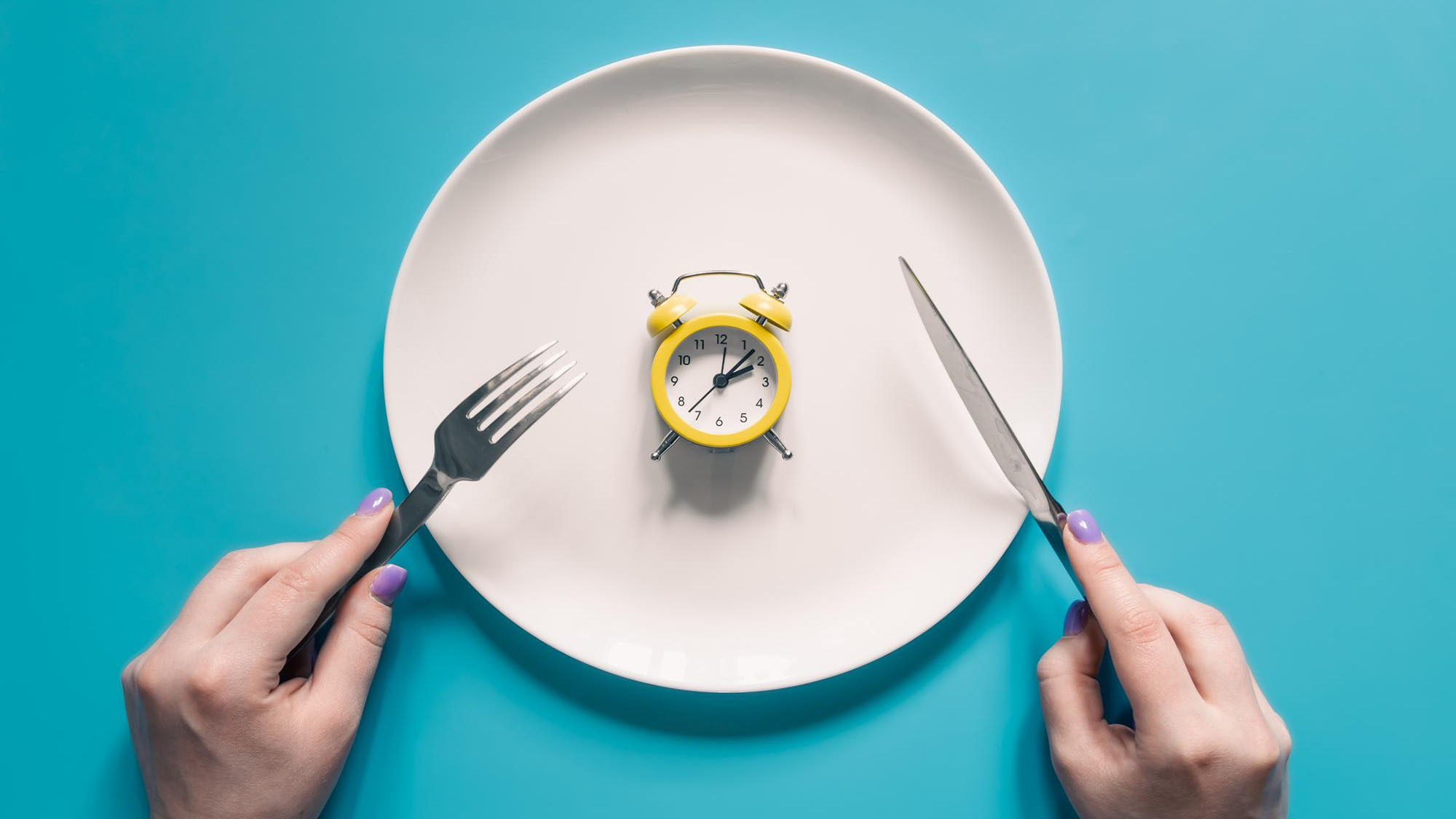What are the Benefits of Intermittent Fasting?
24 July 2023

If you're considering giving intermittent fasting a try, these are the benefits and side effects to consider before changing your eating habits. Plus, the best way to actually stick to a time restricted eating schedule.
Intermittent fasting can be a polarizing subject. There's a firm camp of proponents of the diet, who extol its benefits related to weight loss and energy gain. On the other side of the spectrum, there are skeptics who are wary of the side effects and efficacy of the diet plan.
We're going to dive into the intermittent fasting health benefits and side effects to help you decide if you want to give this way of eating a try.
How to do Intermittent Fasting
As the name suggests, intermittent fasting is a method of eating in which you fast, or don't eat, for specific periods of time.
There are a few different common intermittent fasting, or IF, strategies:
-
The 16/8 method: This means that you fast for 16 hours of every day and consume all of your calories within an 8-hour window. For example, you finish eating dinner at 7pm. skip breakfast the next morning and eat lunch at 11am or noon.
-
The 5:2 method: Followers of this diet eat normally for five days of the week and restrict their caloric intake significantly for two days of the week. During the "fasting" "days, you'll eat just 500 to 600 calories.
-
The Eat, Stop, Eat method. In this case, you'll completely fast for 24 hours one or two times every week and eat normally the rest of the time.
While each method is slightly different, the goal and results are largely the same. Choosing the right IF strategy comes down to your schedule and eating habits.
Intermittent Fasting Side Effects
Let's start with some of the potential side effects and complications of adopting an intermittent fasting diet.
First, if you're used to a traditional three-meals-a-day diet, you may find the transition to a shorter eating window difficult. It can take time for your body and mind to adjust to a new way of eating.
Intermittent fasting is not recommended for any one who has struggled with disordered eating in the past, as it can encourage potentially harmful behavior.
The most prominent side effect of intermittent fasting is, not surprisingly, hunger. However, studies suggest that feelings of hunger tend to subside after a few days of following the time restricted eating schedule.
Some people who adopt an intermittent fasting diet experience physical symptoms like headaches and brain fog. This may be related to low blood sugar, and as you continue following the eating schedule, most people find that headaches subside.
What are the Benefits of Intermittent Fasting?
It's important to keep the potential side effects in mind if you're considering a new eating pattern like IF.
Of course, the health benefits are just as important, and they include:
-
Weight loss: Studies suggest that IF may be an effective treatment for obesity in adults.
-
Improved blood pressure: Even without weight loss, IF may help people lower their blood pressure, which can help protect against heart disease and stroke.
-
Improved insulin sensitivity: Insulin sensitivity is a marker of type 2 diabetes. Studies have shown that following a time restricted eating pattern may help people improve their insulin sensitivity, which can reduce the risk of type 2 diabetes.
-
Increased HGH levels: Intermittent fasting may lead to an increase in the level of human growth hormone, which can promote fat burning and help build muscle.
-
An increased metabolic rate: When your body has less insulin and higher HGH, it has a higher metabolic rate, which means a higher energy expenditure (burning more calories).
How to Stick to An Intermittent Fasting Schedule
If you're interested in adopting IF for yourself, there are a few things you can do to make the transition easy and stress-free.
First, chances are that you'll be eating breakfast later than usual. Instead of bringing soggy toast to the office or caving into a fast-food delivery at lunch time, a meal delivery service is a simple solution to getting a nutritious delivered meal right to your door. When you're ready to break your fast, you'll have a nutritionally-balanced, ready-to-eat meal on hand.
We deliver fresh meals to residences and businesses throughout the greater Chicago area every single day. And since we don't require a commitment or long-term subscription, our service fits your goal and intermittent fasting plan.
But most importantly, if you're committing to a healthy diet for weight loss and longevity, you want to fuel your body with premium nutrition. That's why each of our menu items is crafted by a team of culinary experts and nutritionists to include the best seasonal ingredients and flavors.
If you're ready to commit to an intermittent fasting diet, set yourself up for success by having chef-crafted, ready-to-eat meals delivered to your kitchen every day.



